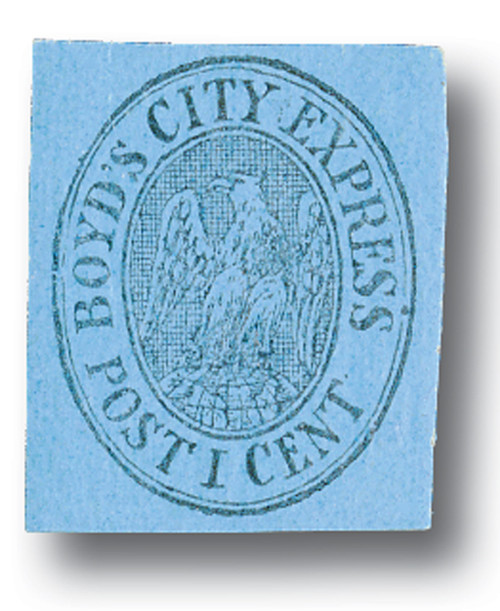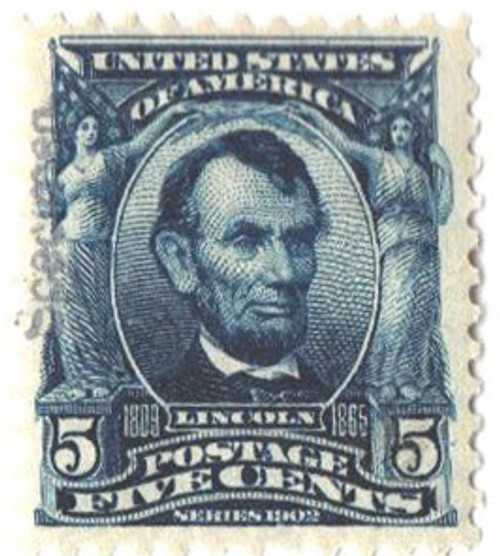

1866 5c blue
# 114L2 - 1866 5c blue
$19.00
U.S. #637
1926-28 Rotary Stamp
5¢ Theodore Roosevelt
Perforated 11 x 10.5
1926-28 Rotary Stamp
5¢ Theodore Roosevelt
Perforated 11 x 10.5
Issue Date: March 24, 1927
First City: Washington, DC
The 1926-28 rotary stamps used the designs of the flat plate Series of 1922-25. The 5¢ denomination pictures Theodore Roosevelt, the hero of the Spanish-American War known for his take-charge attitude, love of the outdoors, and a passionate conservationist.
Theodore Roosevelt (1858-1919)
26th President
26th President
The youngest man ever to become president, Theodore Roosevelt was born in New York City on October 27, 1858. He graduated from Harvard in 1880, and in 1881, at the age of 23, was elected to the New York state assembly.
Roosevelt was appointed President Benjamin Harrison’s Civil Service commissioner in 1888, and president of the Board of Police Commissioners in New York City in 1895. That year, he became the assistant secretary of the Navy. When the Spanish-American War began on April 25, 1898, Roosevelt resigned so he could take a position where he could fight. He earned great fame as the leader of the Rough Riders cavalry regiment. This fame helped Roosevelt win election as the governor of New York.
He served as vice president under President William McKinley. When McKinley was assassinated six months into his second term on September 6, 1901, Roosevelt became president. He was elected to the nation’s highest office in 1904.
Roosevelt strengthened the power of the presidency. At home he brought reform, limiting the power of big business, regulating the railroads, protecting the public from harmful foods and drugs, and conserving natural resources. He also worked hard to make America a leader in international affairs. His motto for foreign policy was: “Speak softly and carry a big stick.” He favored a strong military. During his administration, the U.S. began building the Panama Canal, kept European nations from interfering in Latin America, and helped end the Russo-Japanese War. In 1906, he received the Nobel Peace Prize. He was the first American to receive this honor.
U.S. #637
1926-28 Rotary Stamp
5¢ Theodore Roosevelt
Perforated 11 x 10.5
1926-28 Rotary Stamp
5¢ Theodore Roosevelt
Perforated 11 x 10.5
Issue Date: March 24, 1927
First City: Washington, DC
The 1926-28 rotary stamps used the designs of the flat plate Series of 1922-25. The 5¢ denomination pictures Theodore Roosevelt, the hero of the Spanish-American War known for his take-charge attitude, love of the outdoors, and a passionate conservationist.
Theodore Roosevelt (1858-1919)
26th President
26th President
The youngest man ever to become president, Theodore Roosevelt was born in New York City on October 27, 1858. He graduated from Harvard in 1880, and in 1881, at the age of 23, was elected to the New York state assembly.
Roosevelt was appointed President Benjamin Harrison’s Civil Service commissioner in 1888, and president of the Board of Police Commissioners in New York City in 1895. That year, he became the assistant secretary of the Navy. When the Spanish-American War began on April 25, 1898, Roosevelt resigned so he could take a position where he could fight. He earned great fame as the leader of the Rough Riders cavalry regiment. This fame helped Roosevelt win election as the governor of New York.
He served as vice president under President William McKinley. When McKinley was assassinated six months into his second term on September 6, 1901, Roosevelt became president. He was elected to the nation’s highest office in 1904.
Roosevelt strengthened the power of the presidency. At home he brought reform, limiting the power of big business, regulating the railroads, protecting the public from harmful foods and drugs, and conserving natural resources. He also worked hard to make America a leader in international affairs. His motto for foreign policy was: “Speak softly and carry a big stick.” He favored a strong military. During his administration, the U.S. began building the Panama Canal, kept European nations from interfering in Latin America, and helped end the Russo-Japanese War. In 1906, he received the Nobel Peace Prize. He was the first American to receive this honor.









